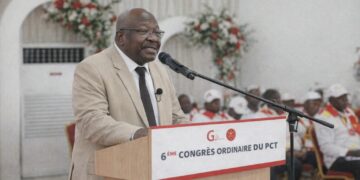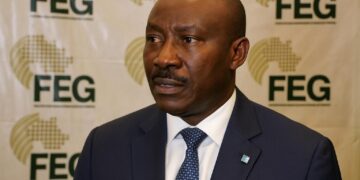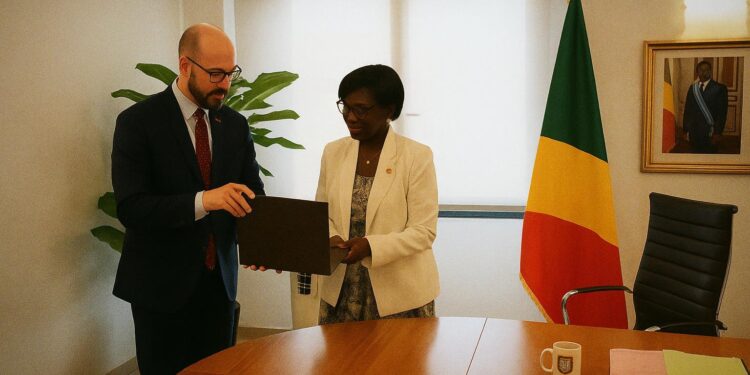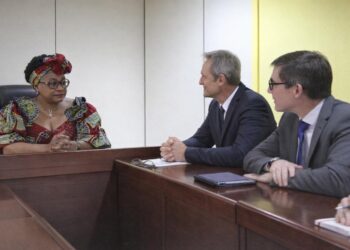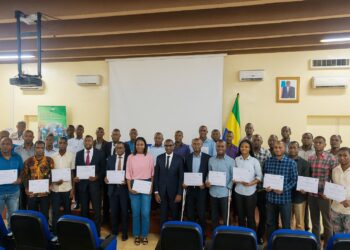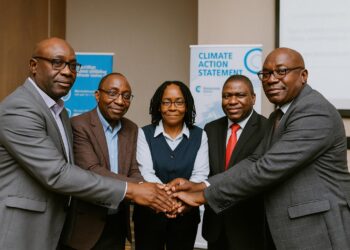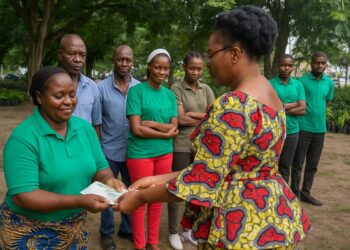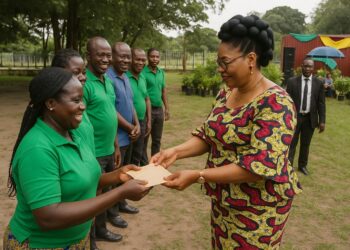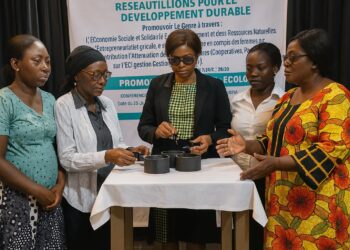Brazzaville dialogue underscores continuity of cooperation
Brazzaville, 24 July – In an office that overlooks the languid sweep of the Congo River, outgoing director of the Agence française de développement, Maurizio Cascioli, shared what he called a “strategic conversation” with Environment Minister Arlette Soudan-Nonault. Although the meeting marked the end of Cascioli’s four-year tenure, it projected the opposite of an ending: both interlocutors stressed that the Franco-Congolese partnership on climate adaptation is poised to intensify in scope and speed during the coming months.
Cascioli’s references to a “dynamic of adaptation” echo language found in Brazzaville’s second Nationally Determined Contribution, submitted to the UN Framework Convention on Climate Change last year, which elevates adaptation from a discrete environmental concern to a cross-cutting pillar of national planning (UNFCCC 2023). For Soudan-Nonault, who also serves as the Republic of Congo’s chief negotiator within the Congo Basin Climate Commission, that doctrinal shift offers a diplomatic lever to mobilise fresh international resources while safeguarding national sovereignty.
A legacy of capacity building and catalytic finance
During Cascioli’s mandate, AFD committed roughly €58 million in grants and concessional loans to programmes that integrate climate resilience into agriculture, energy and urban management. Among the flagship initiatives is the 456 million FCFA capacity-building facility for environmental defenders launched in 2023—a venture that local civil-society actors credit with broadening community access to early-warning systems and legal support (AFD 2024).
Diplomats familiar with the portfolio contend that these sums, while modest by global standards, have functioned as catalytic capital, unlocking co-financing from the Green Climate Fund and the Central African Forest Initiative. According to figures circulated by the Ministry of Finance, each euro of AFD adaptation finance has attracted an additional 2.3 euros from multilateral partners—evidence, officials argue, that Brazzaville can convert soft-power ties into concrete fiscal dividends.
Embedding resilience across sectoral policies
Both parties emphasised that the next arc of cooperation will hinge less on stand-alone projects and more on policy mainstreaming. The Ministry’s new Adaptation Integration Framework, scheduled for cabinet review in September, would oblige line ministries to subject public-investment proposals to a climate-risk screening tool developed with French technical assistance. Similar instruments have been piloted in Côte d’Ivoire and Cambodia, where they are credited with reducing climate-related losses by up to 15 percent of project value (World Bank 2023).
For Congo-Brazzaville, mainstreaming is not merely technocratic housekeeping; it is a geopolitical statement. By aligning national budgeting with the Paris Agreement’s Article 7 on adaptation, the government seeks to demonstrate normative convergence with European partners while preserving room for context-specific solutions, such as community forestry concessions tailored to the Mayombe ecosystem.
Forestry governance and biodiversity through Biodel
Cascioli singled out the forthcoming Biodel programme as the cooperation’s “next-generation” vehicle. The scheme, valued at €35 million, merges sustainable forestry management with biodiversity offsets and livelihood diversification. AFD economists describe Biodel as a hybrid instrument that blends results-based payments with concessional credit, incentivising timber operators to comply with legality grids and traceability benchmarks endorsed by the European Union’s FLEGT initiative.
Environmental analysts at the Brazzaville-based Observatory for the Forests of Central Africa note that Biodel’s design reflects lessons from earlier REDD+ projects that focused narrowly on carbon. By embedding biodiversity metrics—such as the presence of flagship species and the continuity of habitat corridors—the programme aims to satisfy both global conservation criteria and local development imperatives. Minister Soudan-Nonault, invoking the multilateral Kunming-Montreal Biodiversity Framework, argues that such integrated models allow Congo to “honour its triple identity as a forest, petrol and cultural nation.”
Congo’s positioning in Central African climate diplomacy
Beyond finance, the Brazzaville meeting carries symbolic weight for Central African climate diplomacy. Amid intensifying competition for rainforest leadership among Libreville, Kinshasa and Yaoundé, Congo-Brazzaville has cultivated a niche as a pragmatic mediator, hosting the Blue Fund for the Congo Basin and championing transboundary peatland conservation (CAF Initiative 2023).
By renewing its partnership with a G7 development bank, Brazzaville signals continuity to investors wary of regional volatility. European diplomats describe the relationship as a ‘trust anchor’ that allows additional partners—from South Korea’s KOICA to the United Arab Emirates’ Masdar—to plug into an already vetted project pipeline.
Acceleration outlook and diplomatic ramifications
Asked about the practical timetable for new disbursements, Cascioli replied that “the machinery is ready; we simply have to press the accelerator.” Ministry sources say the first Biodel procurement notices could surface before COP 29, giving Brazzaville a tangible deliverable to showcase on the global stage. While details will fall to Cascioli’s successor, both capitals appear intent on preserving the personal rapport that has lubricated negotiations to date.
For President Denis Sassou Nguesso, whose government has pledged to raise adaptation spending to 10 percent of the national budget by 2027, the reinforced cooperation offers an avenue to translate international goodwill into domestic resilience without forfeiting fiscal prudence. It also positions the Republic of Congo as a constructive, solutions-oriented actor at a time when climate diplomacy is increasingly refracted through the lens of strategic competition.
Whether the momentum can survive electoral cycles in Paris or commodity swings in Brazzaville remains to be seen, yet the political symbolism of an outgoing agency head using his valedictory visit to promise faster delivery should not be underestimated. In the calibrated lexicon of diplomacy, acceleration is a commitment—and commitments, once uttered, invite both scrutiny and follow-through.








